MercoPress. South Atlantic News Agency
Tag: Claudia Sheinbaum
-
Monday, February 2nd 2026 - 09:54 UTC
US signals high-level Cuba contacts as energy pressure campaign widens
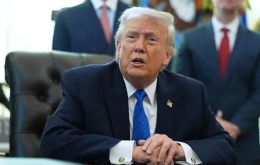
US President Donald Trump said his administration is talking with “the highest people” in Cuba and voiced confidence that a deal could be reached, even as Washington tightens economic pressure aimed at restricting the island’s fuel lifeline.
-
Thursday, November 6th 2025 - 10:54 UTC
Sheinbaum files complaint against man accused of groping her
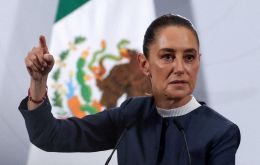
Mexican President Claudia Sheinbaum announced Wednesday that she had filed a formal complaint against a man captured on video allegedly groping her during a walk in Mexico City the day before. The suspect has reportedly been arrested.
-
Monday, November 3rd 2025 - 10:08 UTC
Supermarket blast leaves at least 23 dead in Mexico

At least 23 people died and 12 others were injured after an explosion on Saturday at a supermarket in the Mexican city of Hermosillo, the capital of the State of Sonora.
-
Monday, October 13th 2025 - 07:37 UTC
Heavy rains and floods kill at least 47 in Mexico

At least 47 people have been reported dead as a result of heavy rains, landslides, collapses, and flooding in Mexico as of Sunday, after a tropical system from the Gulf of America -as per US President Donald Trump's rebranding. Tropical cyclones Raymond and Priscilla caused “extraordinary rains” since Thursday. Tropical disturbance 90-E also contributed to the disaster.
-
Thursday, August 28th 2025 - 20:44 UTC
Mexico redefines finished footwear imports

The Mexican Government of President Claudia Sheinbaum suspended all finished footwear imports temporarily to boost the domestic industry. The measure, published in the Official Gazette on Thursday, also tackles smuggling, it was explained.
-
Thursday, July 24th 2025 - 08:36 UTC
Lula and Sheinbaum discuss joint developments
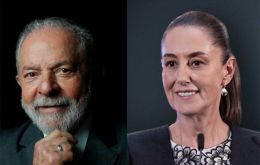
Presidents Luiz Inácio Lula da Silva of Brazil and Claudia Sheinbaum of Mexico held a telephone conversation on Wednesday to discuss strengthening bilateral relations and economic cooperation.
-
Wednesday, June 25th 2025 - 20:14 UTC
Mexican president eyes legal action against Elon Musk's SpaceX

Mexican President Claudia Sheinbaum announced Wednesday that she was reviewing taking legal action against SpaceX due to the environmental damage caused by debris from a Starship rocket explosion in Tamaulipas.
-
Thursday, March 6th 2025 - 21:14 UTC
Trump postpones tariffs on Mexican items at least until April 2
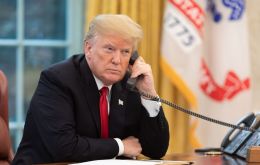
US President Donald Trump announced a temporary exemption from new 25% tariffs for goods from Mexico covered under the 2020 United States-Mexico-Canada Agreement (USMCA). The Republican leader adopted the measure following a telephone conversation with Mexican President Claudia Sheinbaum. The exemption, effective until at least April 2, reverses tariffs imposed earlier this week, aimed at addressing fentanyl trafficking and trade imbalances.
-
Monday, February 3rd 2025 - 19:28 UTC
US tariffs on Mexico on hold after deal between Trump and Sheinbaum
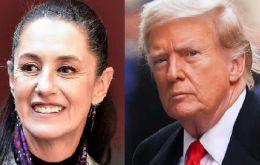
US President Doland Trump agreed Monday to put on hold for at least a month his decision to impose 25% tariffs on Mexican products after a conversation with his colleague Claudia Sheinbaum, during which new conditions were agreed upon.
-
Thursday, January 30th 2025 - 03:32 UTC
Celac emergency summit called off
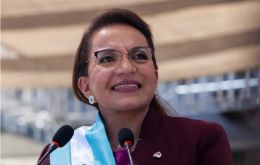
Given the mixed reactions from regional leaders, Honduras' Foreign Ministry announced that the “hybrid” Community of Latin American and Caribbean States (CELAC) emergency Summit convened for Jan. 30 was being called off. Xiomara Castro, holding the group's rotating Presidency, had launched the initiative after the tug of war between Donald Trump and Gustavo Petro over the condition under which Colombian deportees were returned from the United States to their native country.
